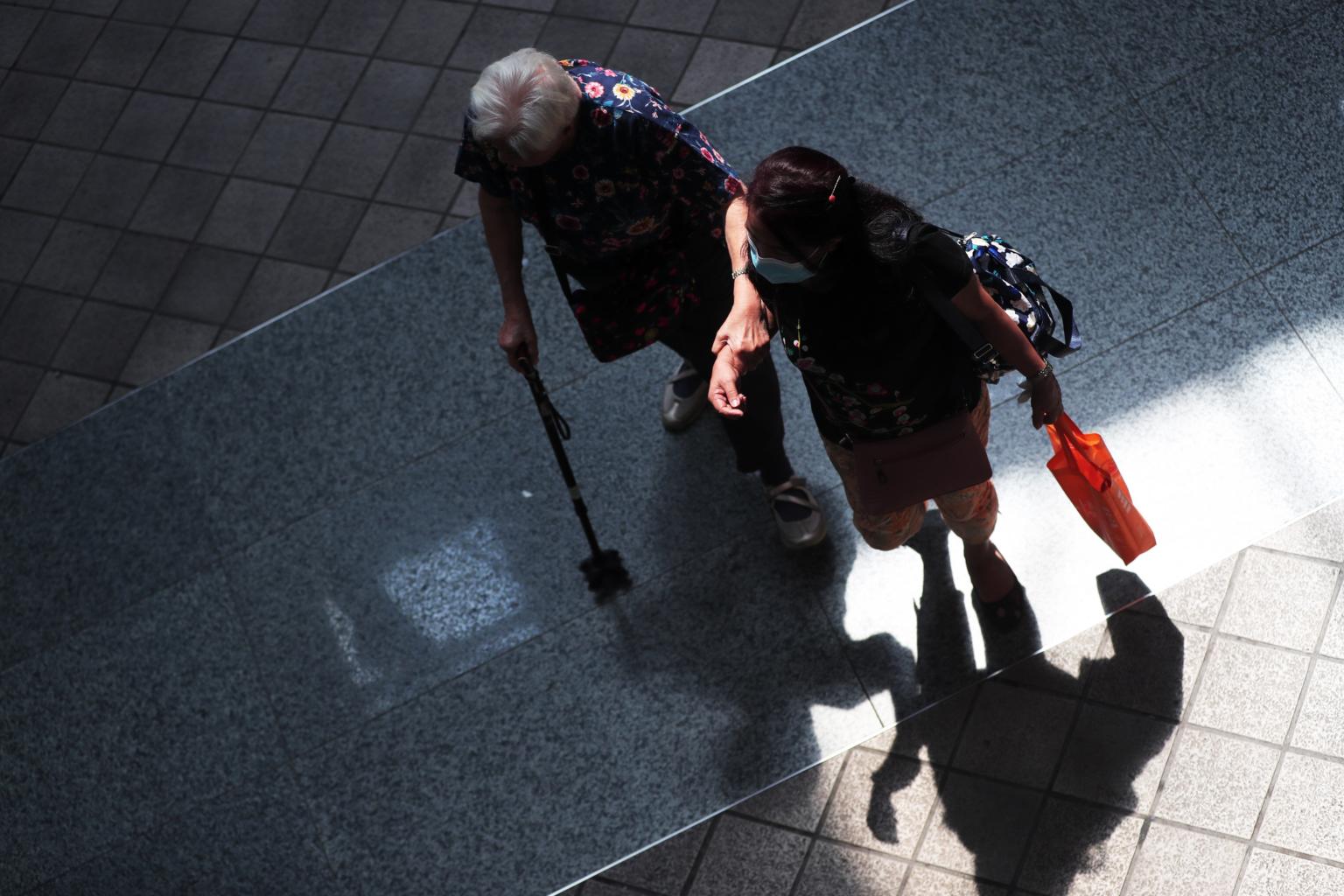Living with dementia
Enabling the vulnerable to advocate for themselves
Sign up now: Get ST's newsletters delivered to your inbox

Enabling vulnerable people to advocate for themselves is one of the goals of a five-year road map for the social service sector launched in 2017.
ST PHOTO: KELVIN CHNG
Janice Tai
Follow topic:
A national movement to get vulnerable people - such as those with dementia or intellectual disabilities - to speak up for themselves and advocate for change in policy or services is under way.
More than 130 people, comprising patients and caregivers from three charities here, have been trained in self-advocacy skills in the past few years. Some have given public talks or interviews.
Enabling vulnerable people to advocate for themselves is one of the goals of a five-year road map for the social service sector launched in 2017. Since then, three charities - the Movement for the Intellectually Disabled of Singapore (Minds), the Down Syndrome Association (DSA) and the Alzheimer's Disease Association (ADA) - have started pilot schemes to teach their clients how to voice their needs and speak up for themselves in public.
The eventual aim is to improve their quality of life when their inputs help raise awareness of their condition, dispel stigma and impact programmes and policy.
Under ADA's Voices for Hope programme, participants engage in activities such as letter writing, and open microphone or dialogue sessions to share their fears, hopes and dreams for society in supporting families affected by dementia.
So far, 38 persons with dementia and their caregivers have taken part. Some have gone on to give talks in schools, hospitals and conferences, or media interviews.
Last November, ADA and the Lien Foundation organised a study trip to Taiwan for 14 dementia patients and their caregivers to learn from their Taiwanese counterparts on self-advocacy.
Taiwan has its own dementia advisory group made up of persons with dementia. Its members participate in dialogues and talks to raise awareness of the condition and influence national policies and services.
In Singapore, Minds and DSA pioneered a self-advocacy programme in 2017 called Our Lives, Our Voices. About 94 youth with intellectual disabilities have been through the eight-week programme where they explore self-advocacy concepts such as decision-making and goal-setting.
Three advocates have since given a keynote speech in a conference in Australia on self-advocacy, and visited the Singapore Parliament last year to better understand their roles and responsibilities as citizens.
The self-advocates also gave their input at the inaugural Disability Applied Research Forum last year and the Inclusive Health Symposium in February this year, both held here.
Said Ms Ruth Wong, programme lead at ADA: "We hope that dementia self-advocates in Singapore will come together to form a dementia advisory group similar to those in place in Australia, Scotland, UK and Taiwan."
Dr Wang Ying-Wei, director-general at Taiwan's Ministry of Health and Welfare, told Insight that Taiwan involves those with dementia in the implementation of local projects or policies for them.
For example, some said that they did not dare to borrow library books as they tend to forget to return them, resulting in fines. So libraries in Taiwan will call to remind persons with dementia to return their books when they are due and waive overdue charges.
Said Dr Wang in Mandarin: "It is a mindset change because sometimes we think persons with dementia cannot make decisions. But they are the ones using these services so only they themselves will know what they need and we need to find that out from them."
For retired pre-school teacher Katherine Lim, 87, who went on the Taiwan study trip, advocacy begins with being heard. "Sometimes when we forget and repeat things and others get angry with us, then we get frightened and stop talking," said Madam Lim, who has given talks at the Singapore Institute of Technology and Sengkang General Hospital.
"I just want to help people understand how it feels to have dementia and what people can do to help."

